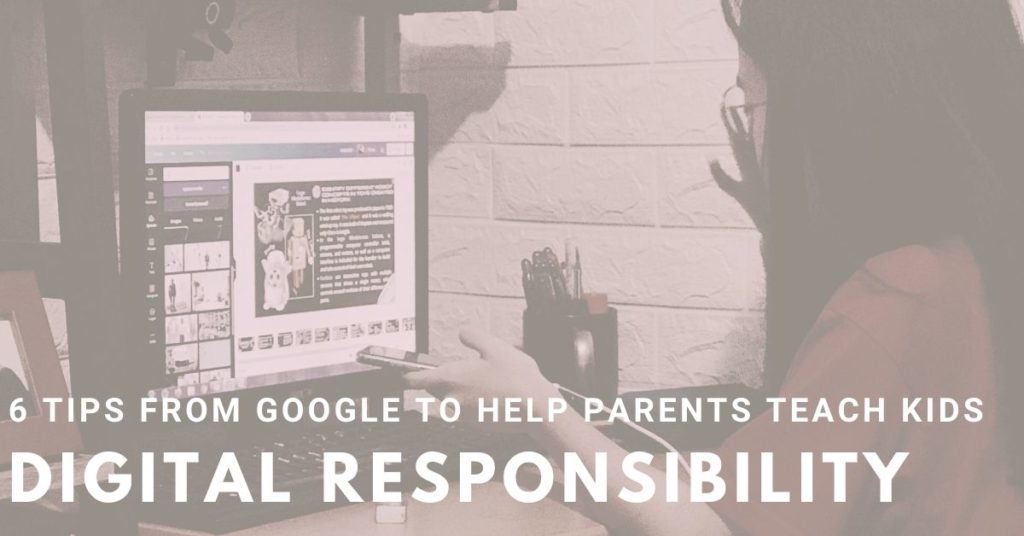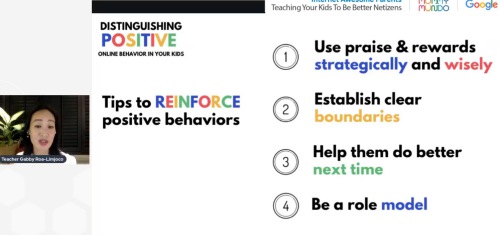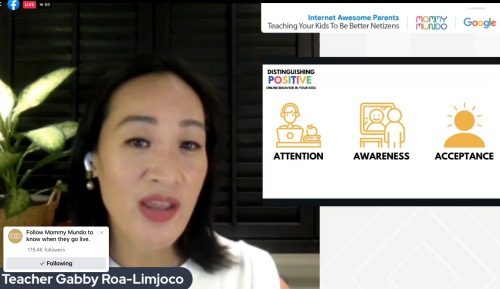What is digital responsibility and how do you teach that to kids? As a mom, teaching responsibility to my kids is a daily challenge because I really have to be there to show them through example like for example, responsibilities at home, or through constant reminders, like when they need to accomplish their responsibilities as students.

Digital responsibility for me, as a parent, is what digital citizens or what we call ourselves as internet users, need to constantly practice if we want our internet experience to be of the best advantage and to be safe and be harmless to everyone. Actually, there are complicated explanations out there but it can also be as simple as it is. For me as a parent, just like in real life, digital responsibility means respecting other’s privacy, wants and wishes.
Google, the most beloved search engine in the world, offers us parents tips how we can teach digital responsibility to our kids.
Teach them to think and act responsibly online
The Golden Rule applies in the digital world. Teach kids that if it’s something they wouldn’t say or do to someone in person, then it is not proper in the online space as well.
Protect passwords
Teach kids to safeguard their personal information. Create a strong and unique password. R3pl@ce le++ers wit# sYmb0ls & n^mb3rs 1ike Thi$. Make it memorable, but avoid using personal information like names or birthdays. Use different passwords for multiple sites.
Avoid sharing personally identifiable information (PII)
Personally identifiable information or PII pertains to information that can reveal someone’s identity which may violate a person’s privacy. Examples of PII include names, birthdays, addresses, and phone numbers among others. Help kids understand the importance of protecting their PII and not sharing it on social media. Teach them as well to respect the privacy of friends and family online by not identifying people by name in public profiles and pictures.
Beware of dangerous sites and scammers
Make sure children avoid downloading from file-sharing websites and don’t accept files or open email attachments from unknown people. Using antivirus softwares is also helpful, but be sure to update it regularly.
Exercise critical thinking
Help young ones learn how to verify information on social media by simply checking other sources or Google Search. For children who use online resources for homework or research requirements, make sure they understand that cutting and pasting content directly from a website may be considered as plagiarism, especially if without citation.
Know where children go online
It is advisable to supervise younger children when they use the internet and tools such as Family Link can help. For older children, it is a must to have an open and healthy discussion about internet use–what is appropriate for them and not. It is important that they understand these boundaries. Parents and guardians may also set rules like scheduling online time and putting gadgets aside during meal or family hours.
I noticed how Google had become very proactive when it comes to making the most of our internet experience and I am so thankful for that especially now that the kids have turned to internet as their way to get through their education. Google Philippines even has YouTube channel and Facebook page that contains all these helpful information not only for kids but for everyone, including parents and entrepreneurs.
Just recently Google partnered with online community of moms and mompreneurs Mommy Mundo through the #InternetAwesomeParents webinar series and the first of it was “Teaching your kids to be better netizens”. The next episodes will be about “Ensuring your kids safety online,” on September 22 and “Setting boundaries with technology for your kids” on September 29.
I learned a lot from the first webinar as there were things that I did not hear before and would like very much to apply to my kids.


If you really want to teach your kids to be digitally responsible, it has to start with us adults. Take advantage of the resources being provided by Google itself because it’s their mission to make learning and playing safe for families.











